It says something that you need not one, but two actors to play Norman Mailer in a performance that places him at the center of a cultural moment he could hardly have held without the connivance of a media machinery he had masterfully charmed and manipulated for almost a decade leading up to it. In fact, by the time D. A. Pennebaker and Chris Hegedus proposed filming the event pitting him against four leading exponents of the feminist second wave in what became Town Bloody Hall, he had already ceded the center spot in that Hollywood Squares of the New York intellectual and media power elite to, among others, a number of women, many of whom were present in Town Hall that evening.
It was ironic that NOW’s New York chapter (and the Theatre of Ideas – the producers of the event) should allow Mailer to reclaim that spotlight in what was conceived broadly as a five-handed debate/conversation surrounding “women’s liberation,” (the phrase reeks of its antiquity in the 21st century, notwithstanding the challenges feminism’s succeeding ‘waves’ are still weathering). But that was Mailer’s singular gift of provocation – anticipating the clickbait and twitterstorms of this century – and his recently published (in The Atlantic) The Prisoner of Sex (which today reads like something between a sexist ‘white man’s burden’ and an overwrought post-Freudian whine) was being treated as the first serious counter-thrust to second wave feminism within the larger dialectic of human rights and liberation. (Seriously.)
Gloria Steinem was certainly one of those women crowding into what was once Mailer’s own spotlight; but, refusing to further legitimate Mailer’s half-cocked assertions (and probably embarrassed for the organizations), she had already turned down an offer to appear on the panel herself. Kate Millett (Sexual Politics) had similarly declined. Diana Trilling, long ensconced (with her husband, Lionel) in that Upper West Side intellectual coven – and a personal friend of Mailer’s – had less compunction about sharing another 15 limelit minutes with him. To their credit, the organizations didn’t stop with friendly fire. Germaine Greer – at the white-hot center of the feminist second wave with the sprawling and protean literary expansion of her Cambridge graduate thesis, The Female Eunuch – was more than capable of standing up to Mailer’s bluster. Jill Johnston, the Village Voice’s dance critic and lesbian firebrand, was the outlier on the panel – a welcome tonic to Mailer’s baldly retrograde attitudes toward homosexuality. The president of NOW’s New York chapter, Jacqueline Ceballos, rounded off the panel. Hard to say what kind of crowds these Theatre of Ideas evenings generally attracted. But with Mailer and Greer both squarely under the media spotlight, the Town Hall event drew an impressive cross-section of New York’s literary and cultural establishment, feminist and non-feminist alike.
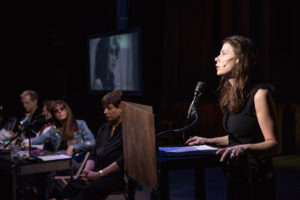
The Wooster Group: THE TOWN HALL AFFAIR 3-21-2017
Mailer’s pronouncements and provocations come across today as a fusion of a simplistic defense of Freudian sexual psychology and pre-emptive strike at the potential pitfalls of political correctness; and he fails to offer even the barest defense to Greer’s eloquent cultural criticism, Trilling’s response to his paper-thin tranche of Freud, to say nothing of Johnston’s radical recontextualization (which he implies would horrify him if he could take it seriously). His transitions between speakers are almost nonsensical. (A frequent rhetorical ploy is to throw out the vaguest stab at an idea and ask his next or the preceding speaker to “think about it,” – and (blessedly) never return to it.) But above all, his posturing is pugnacious, and he is always spoiling for a fight. Johnston’s antics both poetic and physical kicked up a few sparks; and it was all Mailer could do not to set himself on fire. The evening was lively.
Revisiting some of these moments in the Wooster Group’s current dissection (and re-sectioning) of the Pennebaker/Hegedus documentary in The Town Hall Affair is a rueful, complicated, occasionally nostalgia-laden, and downright messy business. The film is actually projected immediately in back of the empanelled actors, running in jagged bits, sometimes leading up to re-enacted passages of the film, at other points converging with them as if in a faint echo. The actors in turn more or less replicate the original speeches and remarks, right down to mimicking the cadences of their characters’ speech and gestures, sometimes astonishingly well. The casting is smart, even inspired. It’s hard to call Greg Mehrten’s impersonation of Diana Trilling a drag or travesti performance. There’s nothing remotely strained about it. To begin with the costuming is minimal across the board – gestural (ties on the two Mailers; a furry boa or stole for Greer; etc.) more than anything else. Mehrten’s legs are bared, but he wears zoris instead of shoes. His physical (or at least facial) resemblance to Trilling is remarkable. (‘Why it’s Diana Trilling,’ you think as s/he takes her place at the table.)

The Wooster Group: THE TOWN HALL AFFAIR 3-21-2017
Kate Valk’s casting as Jill Johnston is similarly inspired; and in her hands and with the Elizabeth LeCompte directed Wooster ensemble overall, she becomes a kind of through-line from the ‘Affair’ itself into the contemporary moment. ‘Was Johnston the only one who really ‘got it’?’ – one wonders again (as many of us did at the time the film came out). Valk’s Johnston effectively replays Johnston’s own dual respect for the intellectual’s scholarly credentialling and lesbian-ur street-cred, all the while taking in the entirety of it as an extended romp.
It also replays a moment we may be looking at with a kind of muted nostalgia – a point riding the momentum of the 1960s where Western culture actually seemed capable of shaking off establishmentarian social conventions and the shibboleths of patriarchal civilization and reshaping itself, not simply in alignment with a forward-looking left-progressive political agenda but with a quantum leap of consciousness. ‘Enough with all the pretentious rot,’ Johnston seems to signal to us. ‘Let’s shake it down to the ground and find out who we really are.’ Or to put it in pop-cliché fashion, the world John Lennon imagined in “Imagine.” (David Bowie would have a slightly more skeptical take on that in “Life on Mars.”)
The election of Richard Nixon to the U.S. Presidency in 1968 was one indication we might have a ways to go before such a realignment, much less ‘reimagination’ might take place. But 1971, seen in retrospect, was still a moment of great hope.
You see a bit of that hope, that liveliness in a few clips of the audience questions and reactions (Affair only features a couple, which is understandable, but it makes one want to run back to the film to replay them all). The audience was peppered with New York’s best and brightest and you see so many of them here: Susan Sontag and Cynthia Ozick prodding Mailer ever so mildly; New York actors’ faces familiar from both television and Broadway theatre (Phyllis Newman flashes before us here). With a few exceptions, the audience sentiment sways against Mailer and he reacts testily. Greer gets her own taste of this with her famous dismissal to an anonymous dweeby westsider – “Don’t worry – whatever women want, it isn’t you.”
Greer’s charm and formidable wit actually rescue Mailer from what might have been a sodden and sinking mess. She effervesces as Mailer slowly boils with rage. But her first presentation (after Mailer’s predictably condescending introduction) is (still) surprisingly sober and direct – and goes to the heart of what LeCompte and the rest of the Wooster Group seem to re-examine here. Maura Tierney, who plays Greer pretty straight (and, as with the two Mailers, mimics that Aussie-by-way-of-Cambridge RP accent pretty accurately) manages to address both Mailer and patriarchal civilization itself and the way both individual (male) artists and civilization have sold women short and betrayed their own spirit into the bargain. Greer comes to the argument from a position of profound respect. ‘It is our civilization, too,’ she essentially argues – from Homeric poetry to Ulysses – but to deny, discount, or displace its feminine contributions or potential contributions is to impoverish and ultimately cripple itself. It’s a far-reaching statement touching on both economic and psychological consequences.
We’re starting to see some of those consequences – though played out in disparate and often physically distant locations – the last desperate and mostly destructive thrusts of the patriarchal culture to impose itself upon a planet moving in a ‘greener’ (in every sense) direction if only because we have little choice to do otherwise. Which brings us to the matter of Affair’s two Mailers.
Scott Shepherd and Ari Fliakos play Mailer in tandem – again, with fairly precise mimicry, right down to that Brooklyn-by-way-of-Harvard accent and staccato delivery. In the middle of one of Mailer’s exchanges, the ‘Mailers’ get up from the table and retreat to the rear of the stage where a shouting match and physical tussle ensues. One of the Mailers seems to become the ‘Un-Norman,’ while the other (Fliakos) remains ‘Mailer’. For anyone familiar with Mailer’s work – on film as well as the page – this is immediately recognizable as the penultimate scene of Maidstone, Mailer’s disastrous film of power-lust, portent and paranoia – a scene that’s come to seem emblematic of the entire film. The entire scene plays as a verité blur between the scenario and the chaotic actuality of Mailer’s film-making process. Mailer plays a major film director (“Norman Kingsley”) running for President. His combatant in the scene is the actor, Rip Torn. (Tierney and Mehrten also participate in this intercut segment as Norman’s wife and a friend who attempt to break up the altercation.) It’s that verité slippage between life and fiction that makes the scene stick with us. Torn challenges Mailer intellectually as well as physically. He had to attack Mailer: the logic of the scenario compelled it and Mailer saw it coming (as the fictional Norman Kingsley sees his impending assassination). It’s pretty realistic and Torn actually draws Mailer blood on camera.
What plays out on stage couldn’t possibly approach that drama; but the Wooster Group gets the point across. There are two Normans here at war with each other: one propping up (and over-promoting) himself, and his patriarchal culture (here in its natural domestic setting with Mailer in paterfamilias guise playing both himself and the combative candidate); and the ‘other Norman’ who knows it’s fundamentally flawed at its heart and must be torn down. It’s something (as Greer herself elucidates in The Female Eunuch) already manifest in the literature, and probably what drew Mailer (however unconsciously) to Town bloody Hall.
Mailer’s career as a literary provocateur did not come to full eclipse that night at Town Hall. His best work was arguably ahead of him. But as the Wooster Group would probably understand, two provocateurs are better than one. It took the participation of another such provocateur – Lawrence Schiller – to facilitate the production of The Executioner’s Song, which just might stand as one of Mailer’s best books.

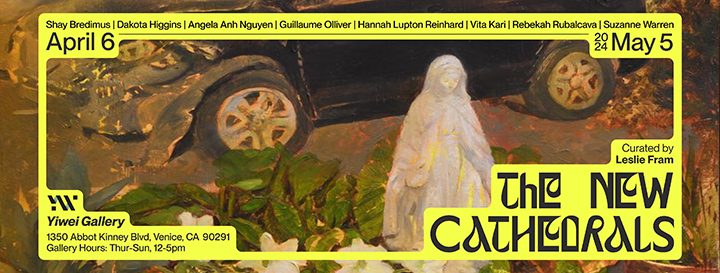



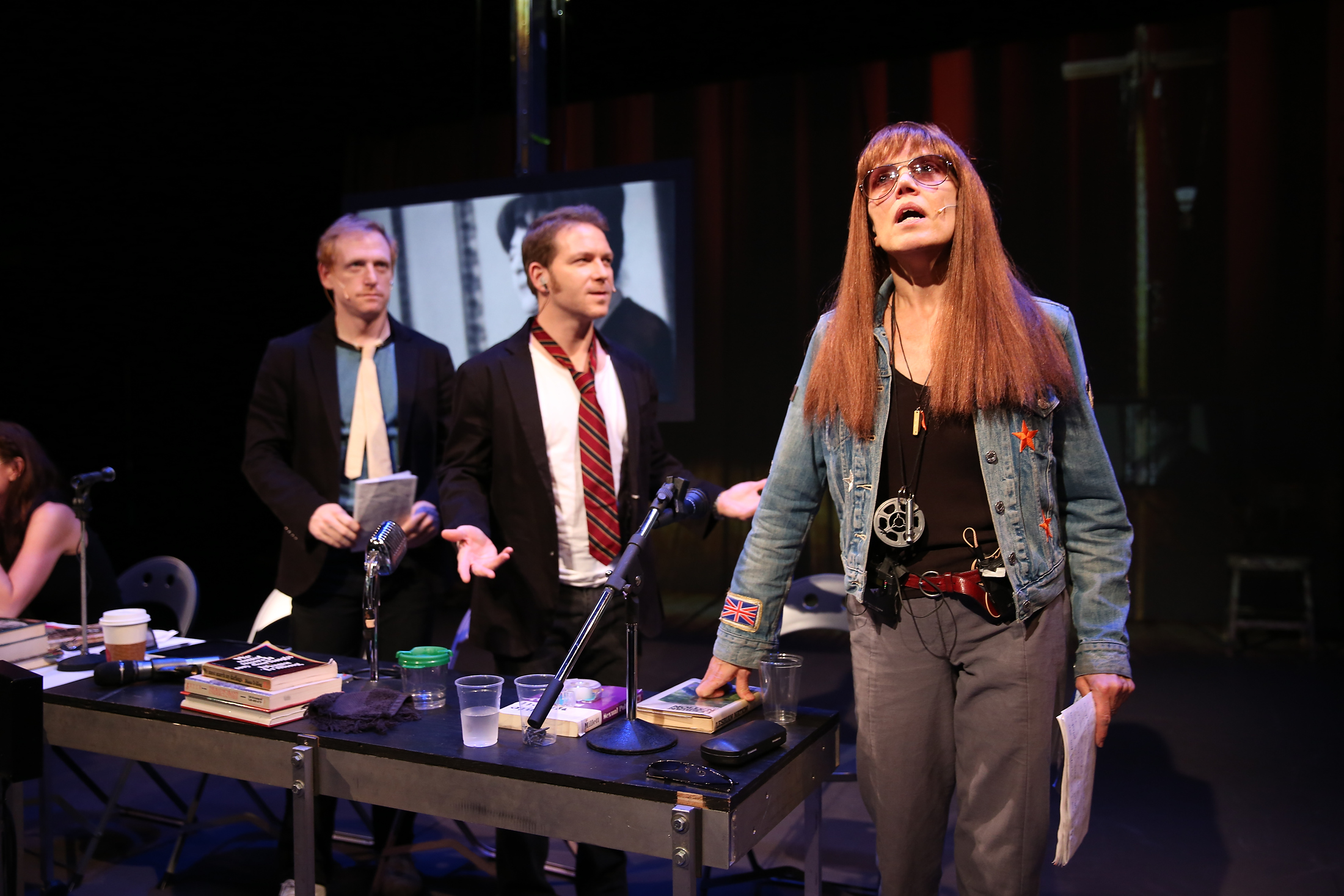
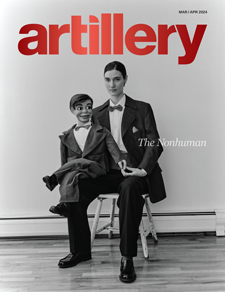


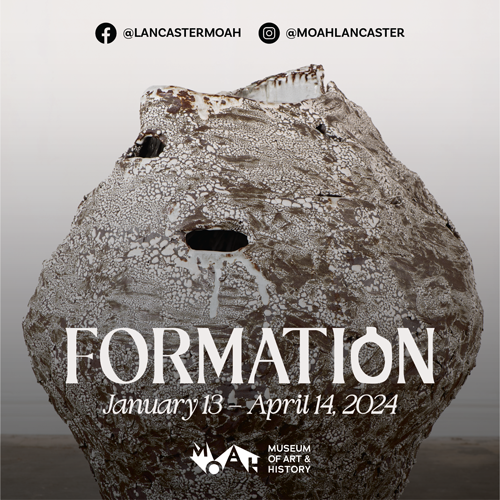


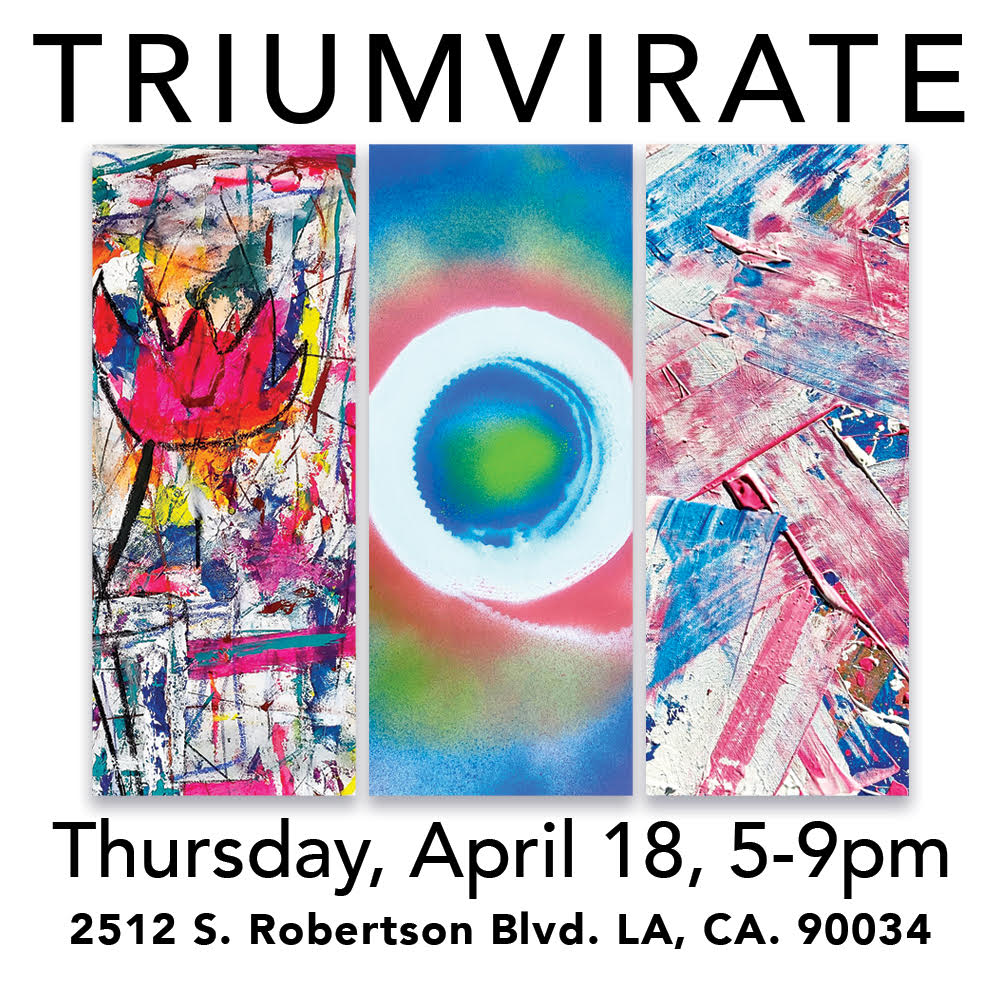


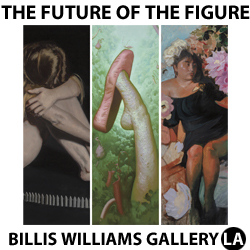



0 Comments